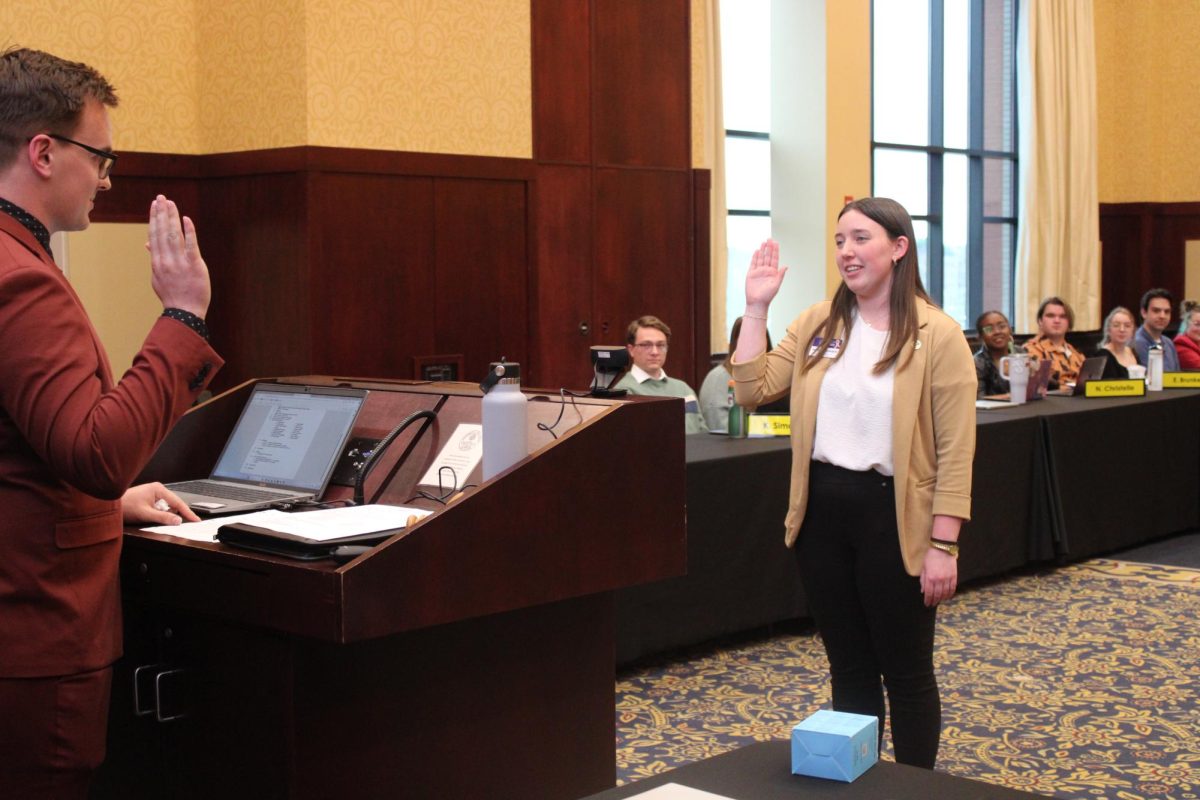After 119 people died from incidents at overcrowded clubs in Chicago and Rhode Island last year, issues of overcrowding and safety at Eau Claire bars have been reconsidered.
Senior Jennie Maurer and her friend, senior Dana Walter, were on Water Street Saturday night. Maurer and Walter go to the bars about once a week, they said.
“Some bars do better jobs at crowdedness,” Maurer said.
Depending on the layout of the bar, the night of the week and time of year, she said the number of people in bars concerns her.
| “We’ve had more requests from tavern league and bar owners to meet with them and make their places safer.” –Janet Harter Eau Claire fire inspector |
Walter said she noticed bouncers keeping track of the number of people going into the bars during Homecoming.
Last fall, the City of Eau Claire issued a citation to Brothers, 324 Water St., for being over capacity on Oct. 3 – the Friday of Homecoming weekend.
During Homecoming 2002, both Brothers and Pioneer Tavern, 401 Water St., received citations for being over capacity two nights in a row.
Assistant City Attorney Lucie McGee said the fine for over-occupancy in 2003 was $60, plus court costs, which comes to a total of $193.40.
In January, the city approved an increase in the fine for violators of occupancy guidelines. Now, the fine is $300 plus court costs – a total of $491.
The city has not issued the fine since the increase, McGee said, but this can be due in part to the time of year.
In the “dead of winter,” she said, fewer people venture out as do in warmer weather and during summer holidays.
McGee took the proposal for the ordinance change to the Eau Claire City Council on behalf of police, fire and building inspection departments.
Eau Claire Fire Inspector Janet Harter said last year’s club fires brought attention to the issue of overcrowding.
“A year ago we didn’t have an awareness,” she said. “We’ve had more requests from tavern league and bar owners to meet with them and make their places safer.”
Though most bars comply with codes, Harter said she’s had problems with a couple of bars still overcrowding.
“For the most part, bar owners and establishments will comply,” she said, “and there are those that choose not to, and that’s their choice.”
Before the Chicago and Rhode Island incidents, Harter said inspections were complaint-generated, but now police and fire inspectors are more aggressive.
Although, there is no set schedule for inspections, she said. Fire, emergency and police all stay on the lookout for overcrowded establishments.
When they inspect a bar, Harter said, officials speak with the bouncers to see if they have an estimate of how full the bar is, or if they’ve been keeping a count.
Though not an exact science, Harter said an easy way to see if the bar is over capacity is to see if one can look to the back of the bar or get emergency personnel and a stretcher through.
Since the Pioneer is shaped like “a long tube,” Walter and Maurer said the layout of that bar makes it difficult to get to exits when it’s crowded.
Paul DelTorto, owner of the Pioneer, declined comment on the issue.
Brothers co-owner Marc Fortney of La Crosse did not return messages left at his office Friday.
Attempts to reach other Water Street bar owners Thursday evening and during the weekend were unsuccessful.
Maurer said bargoers also are responsible for their actions and safety when they go out.
After last year’s club fires, she said she looked for exits in bars after she walked in.
“We also have a responsibility when we go in there,” Maurer said. “You can’t put it on someone else’s back.”






